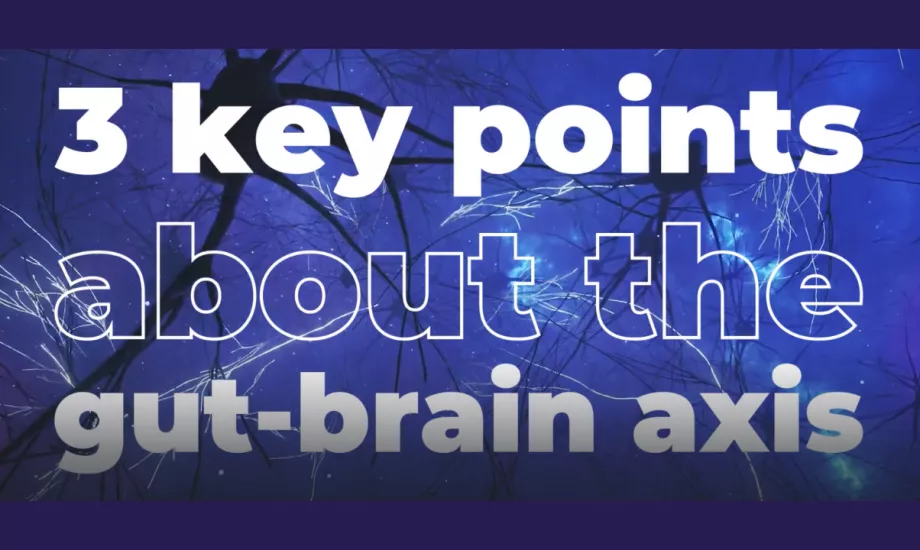The psychobiotic diet: might fermented or prebiotic-rich foods reduce stress?
Ways of reducing anxiety and managing stress on a daily basis would be embraced by a large part of the population left exhausted by the daily grind! A study has revealed that opting for a diet rich in compounds beneficial to gut microbiota, or “psychobiotics,” may be one way to achieve this.
- Learn all about microbiota
- Microbiota and related conditions
- Act on your microbiota
- Publications
- About the Institute
Healthcare professionals section
Find here your dedicated section
Sources
This article is based on scientific information

About this article
From having a knot or butterflies in our stomach to not being able to digest bad news... we all know how emotions can have a “visceral” effect on the constant discussion between our gut and our brain. This “gut-brain axis,” which passes through our digestive microbiota, has opened up huge avenues in terms of new knowledge... and solutions to improve our physical and mental well-being. Many scientific studies are thus revealing the role of gut microbiota in our brain mechanisms, and therefore our (sidenote: Cognition All the mental processes related to knowledge that involve attention, learning, intelligence, language, memory, perception, decision-making, problem-solving, reasoning, etc. Cognition_National Cancer Institute ) and mental health.
Anxiety, depression and certain mood disorders are thereby thought to be associated with intestinal dysbiosis. Given that diet plays an important role in our gut microbiota balance, it may therefore be used as a way to lift our morale, especially if it contains psychobiotic compounds (which act on the brain via gut microbiota), for example fermented foods or foods naturally rich in prebiotics.
What is a psychobiotic diet?
Particularly beneficial for gut microbiota, a psychobiotic diet emphasizes consumption of prebiotic foods (onions, lettuce, cabbage, apples, bananas, whole grains, etc.) and fermented foods (sauerkraut, kefir, kombucha, etc.).
The effect of psychobiotics through diet
Consequently, a team of researchers explored the impact of a 4-week psychobiotic diet on gut microbiota as well as on the mood and stress levels of 24 healthy adults, compared with 21 control subjects. The diet of the “psychobiotic” group was rich in foods beneficial to gut microbiota, with whole grains, fruits and vegetables high in prebiotics (onions, lettuce, cabbage, apples, bananas, etc.) and fermented foods (sauerkraut, kefir, kombucha), while sweets, sodas and fast food were reduced to a minimum. The control group was guided simply by classic nutritional advice, encouraging a balanced diet.

Less stress in less than a month
At the end of the 4 weeks, both groups had benefited from the change in eating habits, with a decrease in the participants’ perceived stress levels compared to the beginning of the study. However, this reduction was significant (32%) only in the “psychobiotic” group, and the more diligently they followed their diet, the greater the reduction. Analysis of participants’ stool samples revealed only slight differences in the composition of their gut microbiota. However, a significant change in certain compounds, called lipid (sidenote: Metabolites Small molecules produced during cellular or bacterial metabolism. For example, short-chain fatty acids are metabolites produced by intestinal microbiota during fermentation of non-digestible complex carbohydrates (fibers, etc.). Silva YP, Bernardi A, Frozza RL. The Role of Short-Chain Fatty Acids From Gut Microbiota in Gut-Brain Communication. Front Endocrinol (Lausanne). 2020;11:25. Lamichhane S, Sen P, Dickens AM, et al An overview of metabolomics data analysis: current tools and future perspectives. Comprehensive analytical chemistry. 2018 ; 82: 387-413 ) , was observed in the psychobiotic group (but not in the control group). According to the researchers, this may be explained by the reduced dietary fat intake associated with the psychobiotic diet, but may also suggest that gut microbiota influences mood by regulating fat metabolism.
The gut microbiota
Feeding our gut microbiota properly could therefore help us reduce our stress. Longer studies involving a larger number of individuals are now needed to confirm the effect of a psychobiotic diet on stress, and to clarify the underlying mechanisms and the role of gut microbiota in these benefits.
Recommended by our community

"Great information" - Peggy Rhinelander
"Good question" - Bear Beauchamp
"Good information" - Hazel Vienneau
"Good too know" - Colette Pellerin















